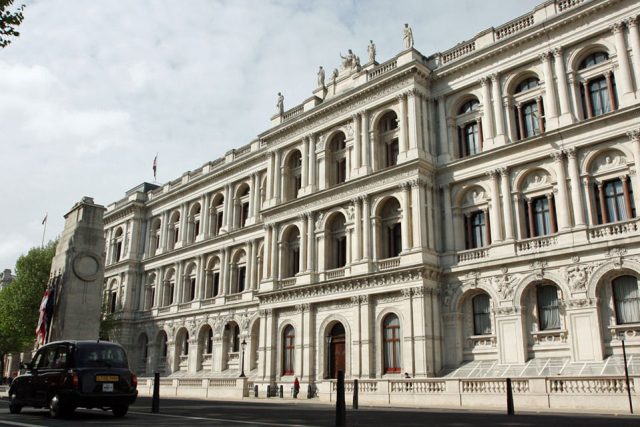Big banks like UBS have one. Then Goldman Sachs and Morgan Stanley and even Bloomberg got in on the act, trading everything from bonds and repos to credit default and interest rate swaps.
These multilateral trading facilities were on everyone’s lips when they were introduced under the first MiFID. Seen as an alternative to mainstream exchanges, they were the future once.
The initial goal was to free up the trading market to more competition by allowing pan-European share trading, reducing fees in the process.
Some also saw them as a way to hedge Brexit trading risks. But over the years, their initial use case has fallen out of favour, and it looks like the first chapter for them is at an end, according to experts.
MTFs had made significant inroads into exchanges’ market share by 2010. Chi-X Europe, for example, was trading nearly a fifth of all European shares.
But they have struggled for profitability. Anaemic trading volumes in the wake of the financial crisis led to combined losses for the likes of Bats Europe, Chi-X Europe, Turquoise and Equiduct of nearly £30m. Bats and Chi-X were later merged under Cboe Europe, now Europe’s largest MTF and owned by Cboe Global Markets, a global markets infrastructure provider.
After more than 10 years, these trading venues are undergoing an identity shift.
Niki Beattie, chief executive of Market Structure Partners, said that over the past decade, exchanges have chipped away at bank MTFs’ original raison d’etre.
“We’ve got to a point where MTFs don’t really add any different value propositions. The fees have been competed away,” she told Financial News. “What we have is a lot of volume going back to the main exchanges, particularly in Europe.”
READFTX debuts biggest crypto bankruptcy in court — what to expect
Major banks launched European MTFs as a hedge against Brexit. Morgan Stanley’s 2018 launch and the start of Goldman Sachs’ Sigma X in 2020 are prime examples. However, Morgan Stanley closed its Paris MTF in September of last year, a sign that MTFs could have insufficient traction among European traders.
According to Beattie, Europe doesn’t have a mentality of interlinking different venues.
“A lot of the European brokers don’t have the same smart order routing capabilities to the different MTFs either,” she said. “In terms of bang for the buck, I don’t really think banks are getting much out of them having to run them in two different places.”
Closures have not been limited to the continent. UBS’s UK MTF was absorbed by Aquis Exchange earlier this year. The terms of the deal were not disclosed.
MTFs have coalesced around a few large players like Cboe, where previously UBS’ was one of the largest in Europe.
One market expert told FN that the closure of bank-run MTFs was a sign that they could achieve similar results routing client orders through an exchange or their own ‘systematic internaliser’ — liquidity providers along the lines of Citadel Securities and Jane Street that are often known as market makers.
READCiti eyes Paris hiring spree as trading roles shift after Brexit
MTFs are also used as a method of conducting dark pool trading, where a trade doesn’t need to be reported publicly until it is completed. But more lenient rules such as the elimination of double volume caps in the UK have meant more dark trading can be done over-the-counter and not on MTFs.
“We’re seeing the end of this ‘first generation’ of MTFs, which offered better technology, same functionality and cheaper pricing,” said Beattie.
The next generation
Firms are starting to look beyond MTFs’ initial purpose as they evolve their offerings.
“The MTF structure allows you to be a little bit more innovative and more daring with your technology,” according to Nicky Maan, chief executive of derivatives MTF, Spectrum Markets. “There is no point in doing another dark pool, you’re better off using that structure for a business reason that’s different.”
Maan said Spectrum’s own objectives of focusing on retail investors made an MTF designation the most attractive one.
“When you’re providing a trading solution for retail clients, you want it to be as transparent as possible. Doing it on an over-the-counter structure doesn’t fit that philosophy.”
READA $5tn Brexit battleground and banned in Russia — What is clearing, anyway?
Being an MTF also made it easier to offer trading 24 hours a day, compared to applying for an exchange licence which has more onerous obligations and regulations due to its focus on IPOs and institutional business.
Some alternative trading systems like Intelligence Cross and OneChronos — US versions of MTFs — are also utilising AI to match buyers and sellers.
“If I was an exchange I would be more worried about this than the bank MTFs, as these guys are changing the market for matching technology,” said Beattie.
Though crypto might be in the midst of another crisis, the industry has also been looking at MTFs as a way into regulated markets.
Earlier this year the Abu Dhabi Global Market approved a licence for US crypto exchange Kraken to operate as an MTF. Crypto Facilities, a Kraken offshoot, was also granted an MTF licence by the UK’s Financial Conduct Authority in 2020.
The first generation of big bank MTFs may be coming to a close, but a new generation based on innovation and technology is emerging.
To contact the authors of this story with feedback or news, email Jeremy Chan and Justin Cash



The Most Read
Сryptocurrencies
Bitcoin and Altcoins Trading Near Make-or-Break Levels
Financial crimes
Thieves targeted crypto execs and threatened their families in wide-ranging scheme
Financial crimes
Visa Warning: Hackers Ramp Up Card Stealing Attacks At Gas Stations
News
Capitalism is having an identity crisis – but it is still the best system
Uncategorized
The 73-year-old Vietnamese refugee is responsible for bringing Sriracha to American consumers
Uncategorized
Electric Truckmaker Rivian, Backed By Amazon, Ford, Raises Whopping $1.3 Billion